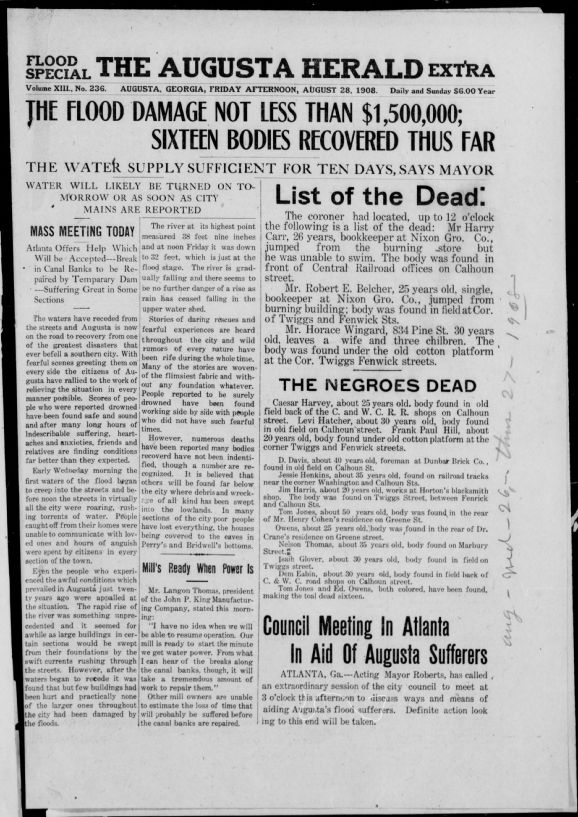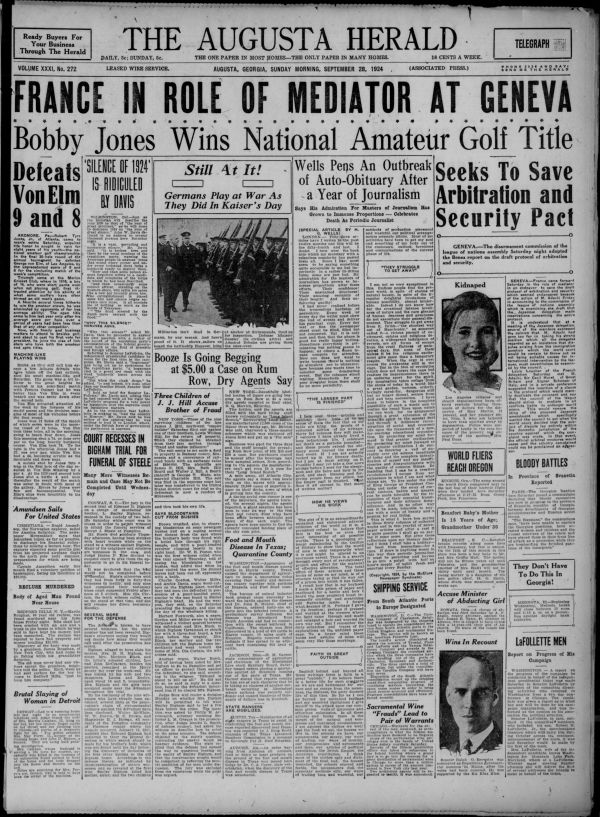This past spring and summer, the Digital Library of Georgia released several new grant-funded newspaper titles to the Georgia Historic Newspapers website. Included below is a list of the newly available titles.
Titles funded by the Burke County Genealogical and Historical Society
True Citizen (Waynesboro), 1902-1926
Titles funded by the Forsyth County Government
Forsyth County News (Cumming), 1959-1995
Titles funded by the Georgia Public Library Service
Bartow Tribune (Cartersville), 1911-1917
Bartow tribune. The Cartersville news, 1917-1923
Cartersville American, 1882-1886
Cartersville Courant, 1885-1886
Cartersville Courant-American, 1888-1889
Cartersville Express, 1880-1889
Coffee County Gazette (Pearson), 1880-1881
Coffee County Progress (Douglas), 1913-1925
Courant-American (Cartersville), 1887-1888
Courant-American (Cartersville), 1889-1901
Dade County Gazette (Rising Fawn), 1879-1882
Dade County News (Trenton), 1888-1889
Dade County Sentinel (Trenton), 1901-1908
Dade County Times (Trenton), 1908
Dade County Weekly Times (Rising Fawn), 1884-1888
Dade County Weekly Times (Trenton), 1889
Douglas Weekly Breeze, 1903-1905
Free Press (Cartersville), 1878-1883
Henry County Weekly (Hampton), 1879-1891
Henry County Weekly (McDonough), 1892-1923
Henry County Weekly and Henry County Times (McDonough), 1891
News and Courant (Cartersville), 1901-1904
State of Dade News (Trenton), 1891-1901
Voice of the People (Cartersville), 1892
Weekly Cartersville Express, 1866
Willacoochee Times, 1921, 1930
Titles funded by the Houston County Public Library System
Houston Daily Journal (Perry), 2006-2007
Houston Home Journal (Perry), 1993-1994
Houston Home Journal (Perry), 1999-2005
Houston Home Journal (Perry), 2007-2008
Houston Times-Journal (Perry), 1994-1999
Titles funded by the Knox Foundation with support from the Friends of the Augusta Library
Augusta Daily Herald, 1908-1914
Titles funded by the Middle Georgia State University Library through a grant from the Georgia Historical Records Advisory Council (GHRAC)
Titles funded by the National Digital Newspaper Program
Americus Times Recorder, 1901-1919
Titles funded by the R.J. Taylor, Jr. Foundation and the Gwinnett Historical Society
Gwinnett Herald (Lawrenceville), 1885-1897
Lawrenceville News, 1894, 1897
News-Herald (Lawrenceville), 1899-1924
Weekly Gwinnett Atlas (Lawrenceville), 1917
Weekly Gwinnett Herald (Lawrenceville), 1871-1885
Titles Funded by the Roman Catholic Diocese of Savannah



